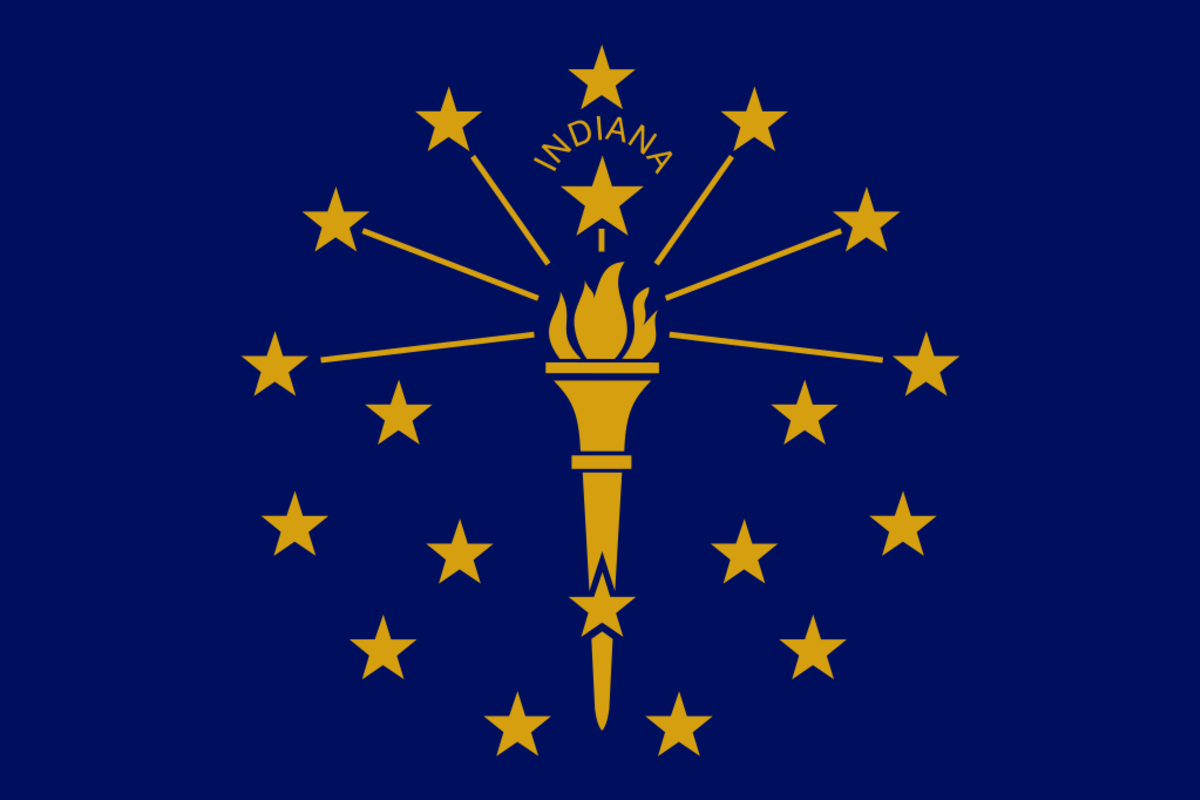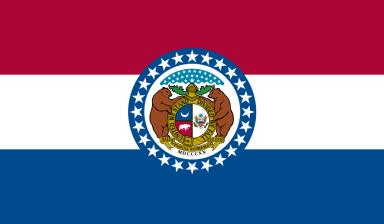Indiana Employment and Labor Laws

It has been said that there are two things certain in life: death and taxes. Yet there is a third certainty that is often overlooked: work.
Thus, there is a need for the law to step in, monitor, and regulate the labor market. The unemployment rate in the state is at 3.6%, while 63.3% is the jurisdiction’s labor force participation rate. As of November 16, 2023, there were 105,860 job postings in the state. On the other hand, the U.S. Equal Employment Opportunity Commission notes that discrimination complaints were common in 2021, with 793 being due to employment retaliation, 488 due to race, and 324 due to age.
In the broadest sense, Indiana employment and labor laws govern the process of work and the activities and outcomes surrounding it. The two concepts — employment law and labor law — may be closely related, but there are subtle differences between the two.
Employment law specifically refers to the relationship between the employer and the employee. Under this branch of law are concerns such as basic pay and minimum wage, overtime, and wrongful termination. It encompasses the interactions between the employee as an individual and the employer.
However, it is often difficult to negotiate effectively with the employer individually. It is frequently necessary to do so in a group. A single individual is easier to dismiss and get rid of, while a group is not. Thus, unions are formed to perform collective bargaining and negotiate with employers.
This is the scope of labor law. It stems from the reality that laborers have to act as a collective to have an effective voice in the workplace. So when it comes to issues like the holding of strikes, fighting unfair labor practices, and discussing better employment perks for all, the field of labor law is invoked. This and more specifics regarding labor and employment laws in Indiana will be discussed below.
Indiana Wage and Hour Laws
Basic Pay and Minimum Wage
Indiana has its own state-level minimum wage law. The minimum wage is the same as that in the Fair Labor Standards Act, which is $7.25 per hour. This covers the basic pay for the first 40 hours of work rendered in a week, divided into eight hours per day.
If the employee is a trainee, their minimum wage is $4.25 per hour. A trainee is one who is under the age of 20 and may be paid the training rate for the first 90 successive calendar days after being hired. The standard minimum wage applies after the 90 days elapse.
Those who receive tips must be paid $2.13 per hour, though this assumes that the tips received by the employee will add up to $7.25 per hour. If the tips do not reach $7.25, the employer must pay the balance.
Overtime
Overtime in Indiana refers to the time rendered beyond 40 hours each week. The corresponding pay is 1½ times that of one’s regular wage. Employers have to give employees a statement of hours worked. The statement has to mention the hours rendered and the deductions made.
Exceptions
Indiana employment and labor laws exempt certain classes of workers from minimum wage and overtime laws. Reasons vary from them being technically not employees but independent contractors to matters of public policy, like in the case of medical interns. These exemptions are:
Individuals younger than 16 years old.
Employees paid on a commission basis.
Independent contractors.
Those working for their parents, child, or spouse.
Religious volunteers.
Ordained, commissioned, or licensed members of religious orders like rabbis, priests, and analogous personnel.
Student nurses working under the supervision of a nurse training school or hospital.
Those under apprenticeship to get embalmers’ licenses.
Medical interns who have completed medical school.
Those with physical or mental disabilities, and those who perform jobs for nonprofits that give employment to people with disabilities or assist in therapy and rehabilitation.
Persons who provide services for any recreational, guidance, or camping facilities operated by religious, nonprofit, or charitable entities.
Insurance producers or solicitors who purely earn commission income.
Those who work less than four weeks in any four successive 3-month periods.
Certain classes of direct sellers.
Certain classes of agricultural workers.
Indiana Unionization Law
Bargaining with the employer on your own is a fool’s errand — a single voice can be easily silenced or dismissed in the workplace. Hence, many laborers choose to group themselves into a collective and form labor unions under Indiana employment and labor laws. However, being in one is not compulsory; those who choose not to join these unions should be able to do so without being compelled or threatened.
Union Membership
Indiana is a right-to-work state, and as found in its labor relations policy, the freedom to associate and collectively bargain runs both ways. On one hand, those who wish to join a union may do so freely, and no court shall restrain a laborer in the exercise of this right. But on the other hand, neither may anyone be compelled to join a union if one does not wish to be a member.
Unfair Labor Practices
Indiana respects the rights of laborers to file complaints and call out their employers when it comes to workplace issues, such as wage and employment terms. Workers are also allowed to bargain collectively to reach compromises with the employer.
An unfair labor practice, as federally defined, is any action that restricts these rights. Employees cannot be restrained from:
Joining or refusing to join a union.
Seeking a union’s assistance.
Making a workplace grievance known.
Representing a union.
Being represented by a union.
Unions, on the other hand, should not:
Threaten an employee for filing an unfair labor practice charge.
Refuse to process grievances from non-members.
Refuse to negotiate in good faith with the employer.
Strikes and Concerted Action
The right to hold a strike is recognized in IC 22-6-1-4. No court or judicial body is allowed to prevent individuals and groups from refusing to work or performing any strike in relation to a labor dispute. This right exists both for employees who act alone without a union and for those who are affiliated with a union. The right to peaceably assemble and protest also prevents courts from issuing temporary restraining orders against the public airing of issues and grievances that lead to disputes.
Is Indiana an At-Will Employment State?
Indiana is an at-will employment state where employers, by default, are allowed to hire, demote, lay off, suspend, or fire a worker at their discretion. This right is very broad, and there are no other grounds needed to justify a decision to get rid of a worker.
A notable exception, however, is if the workplace has a collective bargaining agreement that lists specific reasons for dismissing or disciplining employees. This agreement is a negotiated contract between the union and the employer where they agree on the terms and conditions of employment, including the selection and dismissal of workers. Collective bargaining can be a powerful tool because it removes arbitrariness from the equation when it comes to the issue of firing employees. In such situations, the employer has to follow the terms and conditions stated in the agreement.
What Qualifies as Wrongful Termination in Indiana?
While Indiana is an at-will employment state, that does not mean the right to fire, lay off, or suspend an individual has no limits. It is still possible to wrongfully terminate an employee in the jurisdiction if the reasons are discriminatory. These include forms of discrimination against:
Sex.
Age.
Race.
National origin.
Religion.
Disability.
Generally, the law prohibits treating people unequally for reasons that have nothing to do with their ability to work effectively. If a person’s condition has zero bearing on their performance, there should be no reason for them not to have a fruitful career and thrive in the workplace.
Moreover, employers are not allowed to dismiss employees in an abusive manner or in a way that violates the exercise of a legal right. These cover situations where:
The firing is a form of harassment.
The firing is a form of retaliation for filing a complaint against the employer.
The dismissal violates rights under labor laws like collective bargaining and unionization.
There is a violation of existing written or oral agreements.
How Do You Report an Employer in Indiana for Wrongful Termination?
Wrongful dismissal suits in Indiana have various similarities with civil discrimination suits. In a wrongful termination case, the plaintiff alleges that the termination of employment was due to discriminatory reasons. The agency in the state that takes care of civil discrimination matters is the Indiana Civil Rights Commission. The complaint may be submitted in four ways:
Online at the ICRC Civil Rights Portal.
By phone at (800)-628-6580 (toll-free) or (317)-232-2600 (office).
By mail to the Indiana Civil Rights Commission, 100 North Senate Avenue, Room N300, Indianapolis, IN 46204.
In person at 100 North Senate Avenue, Room N300, Indianapolis, IN 46204.
The claimant must allege that they were discriminated against in the workplace. They must then cite a basis upon which the discrimination is founded, whether race, religion, or any other under the law. A statement of allegation is required and must detail the nature of the discrimination that occurred in the workplace, the events showing the mistreatment, and the consequences of the events.
Once the ICRC receives the statement, it will assess whether it meets the requirements for a complaint. If it does not, staff will assist in filing the paperwork, and then the ICRC intake officer will review the documents once more. An investigation follows if the complaint appears to have merit.
If the dismissal involves labor relations matters, the worker may ask for assistance from the union, which will resort to the procedures stated in the collective bargaining agreement. Regardless of where the dismissal is founded, it is never a bad idea to look for a lawyer because the issue can end up in either the trial courts or mediation.
What Is the Statute of Limitations for Wrongful Termination Cases in Indiana?
The statute of limitations for wrongful termination varies depending on the reasons behind the termination. If the basis is discrimination, the case must be brought before the ICRC within 180 days of the incident. Filing a claim beyond this timeline will result in the dismissal of the claim.
If the basis of the suit has nothing to do with discrimination (i.e., a retaliatory firing for filing a complaint), the time to file a formal complaint is two years from dismissal, according to IC 34-11-2-1. The deadline is the same if the defendant is the state itself, according to IC 34-11-2-2.
If the lawsuit is based on a breach of contract (i.e., the employer has a written agreement with the employee), the deadline to file a suit is 10 years, as per IC 34-11-2-11. This is reduced to only six years if the agreement is merely oral.
How Much Can Someone Sue an Employer in Indiana for Wrongful Termination?
The amount an Indiana worker can obtain over a wrongful termination suit depends on how much damage they have incurred. Generally, those who suffer from wrongful discharge from work may receive full compensation in the form of lost wages. This covers the period when one was looking for a new employer or comparable stature.
Punitive damages, on the other hand, are usually not awarded in wrongful termination matters. If there is a general discrimination angle involved, lost wages and compensatory damages are available for the victim. They may also be reinstated in their jobs.
Resources for Employees in Indiana
There are numerous resources available in Indiana for those who need to seek legal remedies in labor or employment law matters. Food banks are also open to individuals who are in between jobs, as well as those who face economic and nutritional hardships due to a lack of food security and income.
Indiana Legal Services, Inc.
Indiana Legal Services, Inc. is a provider of free civil legal assistance to low-income residents across the state. It tackles job and employment-related matters and undertakes issues concerning family relations, children’s rights, education, and consumer advocacy. The office accepts clients who are eligible due to insufficiency in income and assets. The firm has been around since 1966 and aims to assist citizens of Indiana who live below the poverty line.
Indiana Free Legal Answers
Indiana Free Legal Answers is an online resource that gives answers to civil queries at no cost. It is active across 40 states, and it directs the questions of qualified clients to attorneys. The latter, in turn, will furnish an answer to the client’s questions. Notifications for answered queries are made via email reminders to log into the site and check out the attorney’s answer. The topics covered by Indiana Free Legal Answers include work and employment, unemployment, family relations, civil rights, and disability. The website is a project of the American Bar Association.
Neighborhood Christian Legal Clinic
The Neighborhood Christian Legal Clinic has a consult-with-a-lawyer program where individuals may ask for immediate general legal guidance. The office also tackles an assortment of civil matters such as tax and economic justice, immigration, housing, and veterans’ concerns. An online legal help portal is available via its online intake form. The office is at 3333 N. Meridian St., Suite 201, Indianapolis, IN 46208. It is also reachable by phone at (317) 429-4131.
Gleaners Food Bank of Indiana
Gleaners Food Bank of Indiana aims to provide food security to needy members of the state, including those who are unemployed at the moment. The organization has distributed over 98 million meals and has ties with 281 agency partners to fulfill its mission. The establishment is run by 11,000 volunteers who perform community campaigns and food drives. Gleaners Food Bank of Indiana has been operating since 1980 and reaches more than 20 counties.
Midwest Food Bank of Indiana
The Midwest Food Bank of Indiana collects and delivers food to members of the community. Based around Indianapolis, its primary and secondary warehouses are located at 6450 S. Belmont Ave. and 5757 Kopetsky Dr. The establishment is reachable at 317-786-8980 by phone and 317-786-8977 by fax. It is part of the greater Midwest Food Bank, which operates across eight states in the union and internationally in Haiti and Africa. Its mission is to grant disaster relief and food deliveries free of charge.
Expertise.com StaffAuthor
Step into the world of Expertise.com, your go-to hub for credible insights. We don't take accuracy lightly around here. Our squad of expert reviewers, each a maestro in their field, has given the green light to every single article you'll find. From rigorous fact-checking to meticulous evaluations of service providers, we've got it all covered. So feel free to dive in and explore. The information you'll uncover has been stamped with the seal of approval by our top-notch experts.




